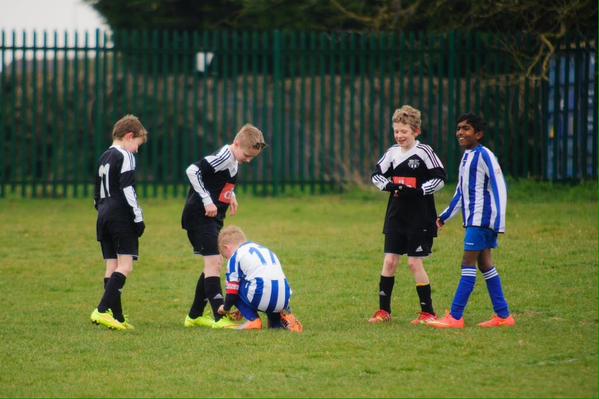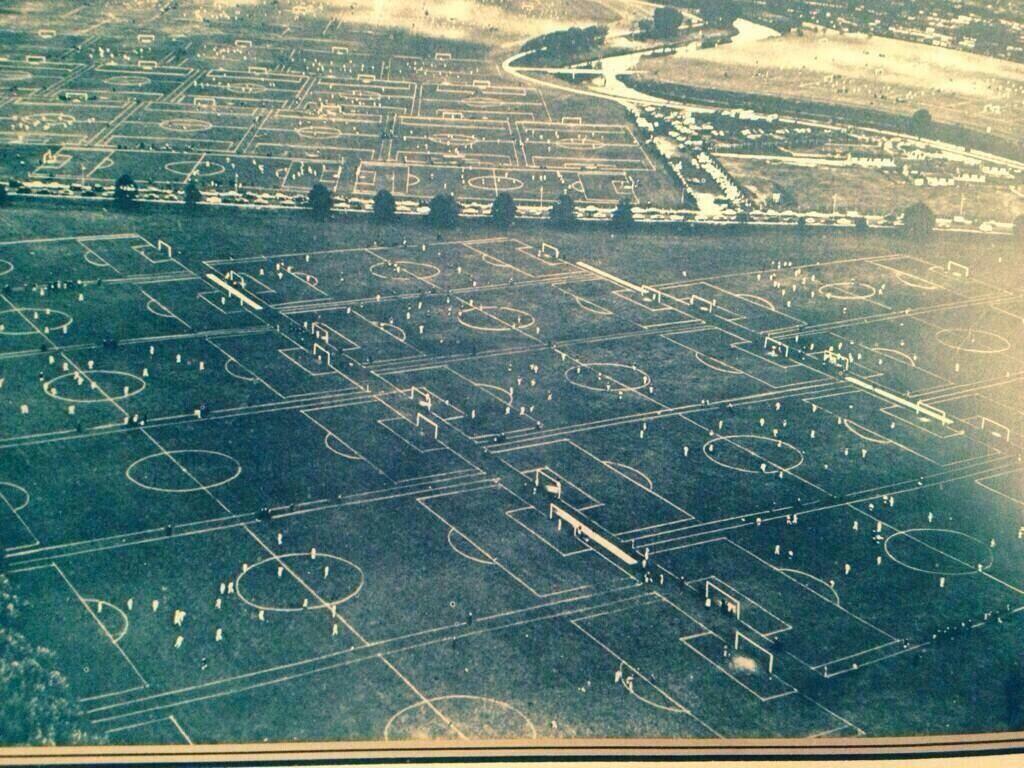As coaches,
volunteers, officials and parents we will all be gearing up for the new season
in grassroots football. Along the way there will be thrills, tears, highs, lows
and most certainly rain. But we don’t ever regret it, do we?
I thought I
would share some of the ways I hope we can make this year the best yet.
Started
on a positive note with the parents
Ask a coach or
volunteer in children’s football about what pains them most during the season and quite often the response will be “parents”! But it doesn’t have to be that
way. Reinforce the expected standards of behaviour and club values with a pre-season
meeting. This can simply be after a training session, before the first game or
at an organised event but doing this gives a clear and honest communication
with the parents of the children at your club. And if you do have the parent
who ‘knows the game’ or is living their dreams through their offspring, then
the likelihood is that when they see the expectations you hold for them, they
won’t stick around for too long.
Create a safe and pressure free environment for the kids
 Only when your
players feel absolutely comfortable can you see their potential unfurl in front
of you. Ever had the child who is fantastic in training who fails to produce
come the match day. It is quite possible that they are feeling under pressure.
Do you have a ‘win at all costs’ philosophy? Is there a rivalry between the two
teams even before kick off? Are the sets of parents rowdy and expectant? Create
a safe environment by reminding the children they are here to enjoy themselves
and learn, encourage pre-match handshakes, install a respect barrier!
Only when your
players feel absolutely comfortable can you see their potential unfurl in front
of you. Ever had the child who is fantastic in training who fails to produce
come the match day. It is quite possible that they are feeling under pressure.
Do you have a ‘win at all costs’ philosophy? Is there a rivalry between the two
teams even before kick off? Are the sets of parents rowdy and expectant? Create
a safe environment by reminding the children they are here to enjoy themselves
and learn, encourage pre-match handshakes, install a respect barrier!
Have you download the Kick It Out app?
This can lead
on from my last point. Have you ever been at a game where you have seen an
incident, involving a form of discrimination, that is simply unacceptable but
you do not know whether to take action, or how to? As a player previously, in
particular, and as a coach now I have experienced that feeling. These can appear
at games or training sessions, and can be quite overt or come in more subtle forms. If
you have not seen it already, the Kick it Out app has a report function, where
you can make a complaint in a very concise and simple way. It also has the
option to evidence your complaint with a photo or video attachment.
Importantly, you can have complete confidentiality. The app covers ninety five
percent of smartphones, so what is to lose by downloading the application?
Discrimination is still rife in the game of football and we can help set an
example in grassroots football that it will not be tolerated.
Listen to the children!
Empowering and
giving ownership can be a great way to inspire confidence from your players.
And what’s more, you might learn something along the way! As Club Welfare
Officer at a grassroots club in London, this year I decided to work with the
younger teams to devise a new code of conduct. A lot of what they talked about
was in fact already in the previous documents, but there were some valuable
insights which we will be implementing into the new codes of conducts. It has
also showed that we value their opinions and that we trust them to help with
making such key decisions.
Be the best you can be for your players
Nearly all
coaches within grassroots football are volunteers, and have full time jobs they
have to focus on. I can appreciate that, having been there myself as well as
studying. That said, we should still strive to be the best version of ourselves
when coaching or volunteering. Attending courses organised and take place
through the Football Association can be fantastic for learning (particularly
the Youth Modules, which I advise any coach to enrol on to) but are quite
costly and difficult to find places on. Simply preparing and evaluating can
help your children make the most of training and matches.
 |
| We can't all be like Jose |
Stay off the pitch!
Okay, so this
is just a bug bear of mine and even I have found myself stood a couple of
yards on the pitch and asked “what am I doing?” To me, coaches who constantly
stand on the pitch are not making any positive difference whatsoever. It can be
intimidating (for your players, the opposition and the official), it shows a lack
of self-control and quite simply, you might get in the way! Taking a few steps
backwards will not harm your view, in fact it may improve it.
And those are
just six of the ways that we can strive to keep improving the state of
grassroots football. There are even more, that I'm sure you have in mind, to
add to the great job those involved are doing year in year out.






